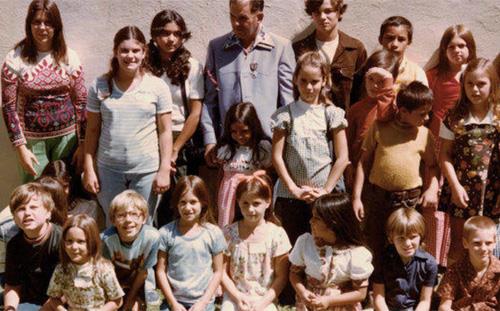Following Survivors of an Unthinkable Horror on CBS' 'Live to Tell: The Chowchilla Kidnapping'

There aren't many worse nightmares than being buried alive, and time doesn't make a buried-alive story any less chilling.
So CBS' 48 Hours will spend this Saturday, 10 p.m. ET, revisiting the heart-pounding 1976 incident in which three California men kidnapped a bus full of schoolchildren and then buried them and their driver underground in a trailer.
Live To Tell: The Chowchilla Kidnapping doesn't have a tragic ending. While the trailer was buried in a place no one was likely to find, the driver and one of the older children were able to dig and claw their way up to the manhole that covered the burial site, freeing the captives.
That doesn't mean, however, that the story had an entirely happy ending.
Anchor David Begnaud wraps up the kidnapping and escape by the halfway point and notes that the three perps were sentenced to life in prison. To this point, all seemingly good.
Then Begnaud shifts his focus to the long-term effects on three of the children. Suddenly we're not happy.
Michael Marshall, the 14-year-old who spent several hours clawing to the surface, relates how a few years later, he became a rodeo rider. Then his life imploded.
Essentially, he says, he started drinking at 18 and woke up at 48. The memories, he said, wouldn't leave him alone. Like the memory of thinking he had never said goodbye to his mother.
Larry Parks, who was six on the day of the kidnapping, says he became "an angry person," lashing out at everyone and everything around him while trying to escape into drugs.
After losing years of his life, he tells Begnaud, he finally found the solution. He met one of the kidnappers and forgave him. That lifted the weight, Parks says.
Jennifer Brown Hyde, who was 9 in 1976, became a media darling in the wake of the kidnapping, because of her calm, measured responses to reporters' questions. She tells Begnaud that public face morphed into private nightmares that lasted for years.
Her memory of the kidnapping, she says, is that "we felt like animals being led to a slaughterhouse."
The Chowchilla case has a news angle at the moment because the mastermind was recently again denied parole. His two accomplices are out, but the victims and their families are determined that the mastermind not breathe free air again.
He's not helping himself in his bid to do so, having been caught behind bars with, among other things, child pornography.
As masterminding goes, the guy wasn't on the A-list of geniuses in the first place. If the case weren't so sobering, there would be an undercurrent of black humor to it.
After the kidnappers had buried the trailer, they called the Chowchilla police to demand the federal government pay them a $5 million ransom.
But by then, there had been so much publicity over the disappearance that the Chowchilla police switchboard was overloaded and the perps couldn't get through. So they took a nap, figuring to call later, and by the time they woke up, the children had escaped.
Given TV's fascination with recounting sensational crimes, both in straight news fashion and through dramedies, this revisit to Chowchilla joins a crowded field.
It still holds several strong lessons, including the severity of delayed trauma and the haunting reminder that this could easily have ended up not as mass kidnapping, but as mass murder.